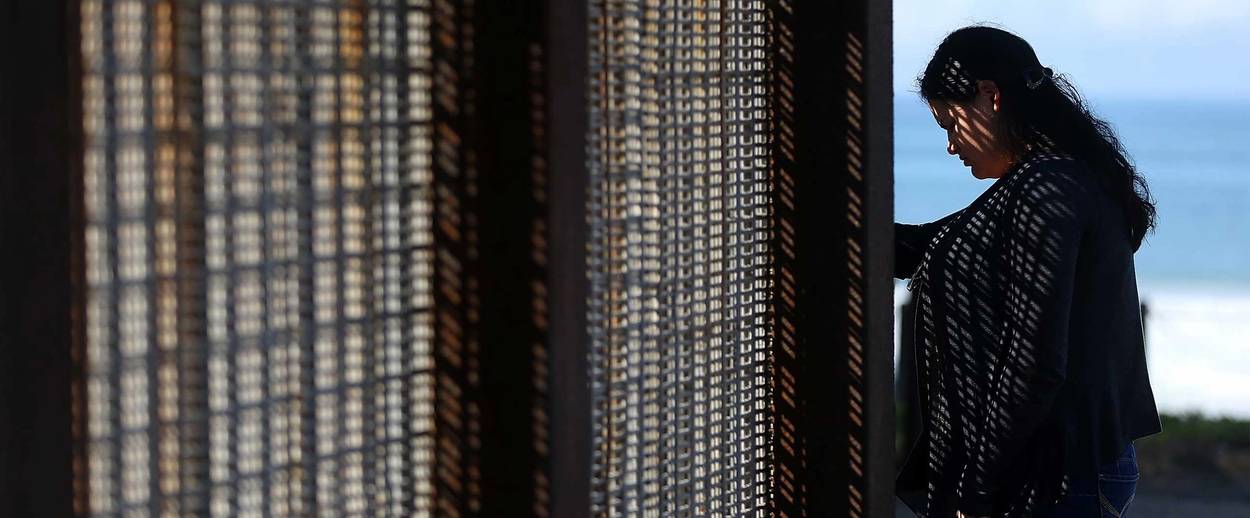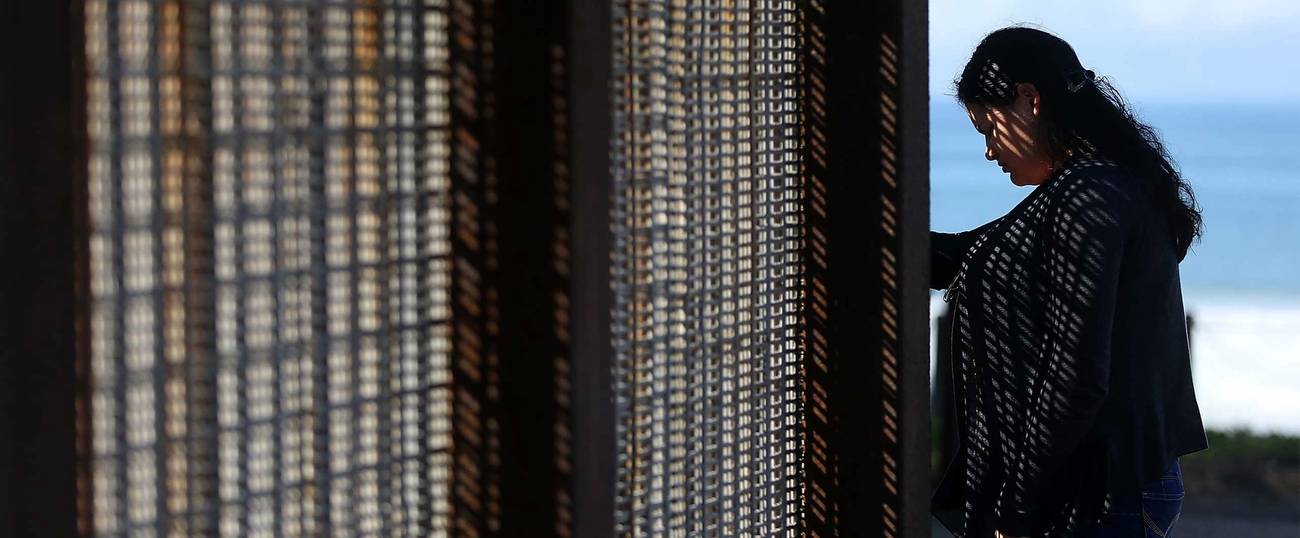Illegal Immigration and the Book of Ruth
Shavuot offers an important lesson for politics today




We read the Book of Ruth every year for Shavuot, the harvest festival that commemorates the Jews receiving the Torah at Mount Sinai. This year, Shavuot—which begins in the evening of May 30—will likely see more than the usual holiday celebrations combining study, sweetness, and blintzes. If the days of Shavuot are like other recent days, they will each also see over 400 arrests of would-be immigrants to the United States by U.S. Immigration and Customs Enforcement. Many of those arrested will have lived among us for years, even decades. They will be men and women, old and young. Some will manage to fight their removals, finding the resources to assert defenses to deportation, to push back against unforgiving and complicated processes very much stacked against them. But many will not. Without the thousands of dollars it takes to hire an immigration lawyer, or perhaps with a record tainted by a minor crime—shoplifting, driving without a license, a bad check—they will be quickly deported. Some will be returned to countries they fled to escape persecution, danger, hunger, and privation. Some will be torn from their American families, creating near-orphans, almost-widows.
What does this have to do with Shavuot and Ruth? Two things. First, Ruth is a story not just of conversion but of immigration, and illegal immigration at that; I’ll explain below. Second, Ruth stands in for all of us as the best kind of receiver of Torah: She is simultaneously brave and kind. She chooses to make compassion her guiding value, and she boldly ventures to join a new community that in turn accepts her fully. In the story, Ruth’s kindness, her chesed, awakes corresponding compassion in those around her.
I hope, this year, she also inspires our communities to act with kindness and chutzpah, to welcome strangers in need as she was welcomed.
Let me briefly retell Ruth’s story:
In a time of terrible famine and political insecurity, Elimelech left Bethlehem with his wife, Naomi, and their two sons and went to Moab, on the other side of the Dead Sea. After Elimelech and (10 years later) his sons died, Naomi and her two Moabite daughters-in-law were left alone—without children, without male heads of household, without economic or social standing. Naomi decided to leave Moab and travel home to Judah. One daughter-in-law, Orpah, returned to her own mother. Ruth, by contrast, stayed with Naomi, declaring famously:
Do not entreat me to leave you, to turn back and not follow you. For wherever you go, I will go; wherever you lodge, I will lodge; your people shall be my people and your God my God. (Ruth 1:16)
A key word in the Book of Ruth is “kindness” or “compassion”—chesed. It appears three times (1:8, 2:20, 3:10), describing God, Ruth, and Boaz. Ruth’s kindness is vital to Naomi’s survival. Without Ruth, Naomi would have been friendless and helpless on the journey, and perhaps even at its end. Even with Ruth’s help, the two arrived in Bethlehem poor and hungry, dependent on others for food. For others, however, it was a time of plenty. The barley harvest was underway. Ruth went to the field of Boaz, close kin to Elimelech, and gleaned the leftover barley behind the reapers who were harvesting the bulk of the yield. Boaz was so taken by Ruth’s kindness and care for Naomi that he made sure she was able to gather more than enough.
Hunger wasn’t the only danger that threatened Ruth; like farm workers before and since, she faced sexual violence, too. Boaz offered her the safety of the company of other women; he allowed her to work with the women of his household and instructed the men not to assault her. But Ruth wanted more than this kind of precarious safety. She wanted to be a full member of her adopted society. This is where the chutzpah comes in. With Naomi’s advice, Ruth dressed up and lay down next to Boaz in the middle of the night. She propositioned him, not for sex (or, perhaps, not just for sex) but for marriage. She said, “Spread your robe over your handmaid, for you are a redeeming kinsman.” (Ruth, 3:9) He agreed, marrying her and securing Naomi’s economic well-being by buying—“redeeming”—Elimelech’s land from Naomi. Together, Ruth and Boaz parented Obed, King David’s grandfather.
And so Ruth the Moabite went first from gentile to Jew, and then from widow to wife, stranger to citizen, gleaner to matriarch, childless to the (great) grandmother of a king. It’s the ultimate immigration story.
More than that, Ruth’s is a story of illegal immigration. Because she was a Moabite, the Torah expressly excluded Ruth from the Jewish community. Deuteronomy proclaims (23:4): “No Ammonite or Moabite shall enter the assembly of the Lord.” Seeking to reconcile the Book of Ruth’s plot and that passage, commenting rabbis have long offered an implausible and legalistic reading of Torah. The bar was against “a Moabite, but not a Moabitess,” they suggested, without much justification to offer for the distinction. I prefer a kinder reading: Ruth was accepted into the community of Judah because her compassion and her need elicited corresponding compassion from Boaz and from the community itself. Compassion overrode law—at least a law as devoid of ethical content as the anti-Moabite prescription.
As a nation, we are not currently as kind. Consider the words of Elena, an American teenager with undocumented immigrant parents.
My name is Elena. I am 17 years old, and I’m a member of WeCount! I spend a lot of time playing sports and helping my mom take care of my little sisters and brother. . . . [F]amilies don’t deserve to be separated. Immigrant families like mine have been through a lot, and they want to see a change. My dad was deported five years ago back to Guatemala, and it has been really hard. My mom takes care of me and my siblings as a single parent. The thing that keeps me going is seeing my mom every morning when I wake up. I don’t know what I would do without her. Now it’s my turn to protect her.
I don’t know anything more about Elena than she tells us in that paragraph. But isn’t she remarkably like Ruth? Her mother takes care of her, and she is trying hard to take care of her mother, working both at home and politically. She has compassion and she has chutzpah.
As it says in Pirkei Avot, the world is sustained by three things: Torah, worship, and loving kindness. Things are looking very bleak right now for families like Elena’s. Can we do as well as Boaz and Bethlehem and match her kindness and chutzpah with our own?
Margo Schlanger is a professor of law at the University of Michigan and the former Department of Homeland Security Officer for Civil Rights and Civil Liberties. She helped to draft the American Bar Association’s Criminal Justice Standards on the Treatment of Prisoners.